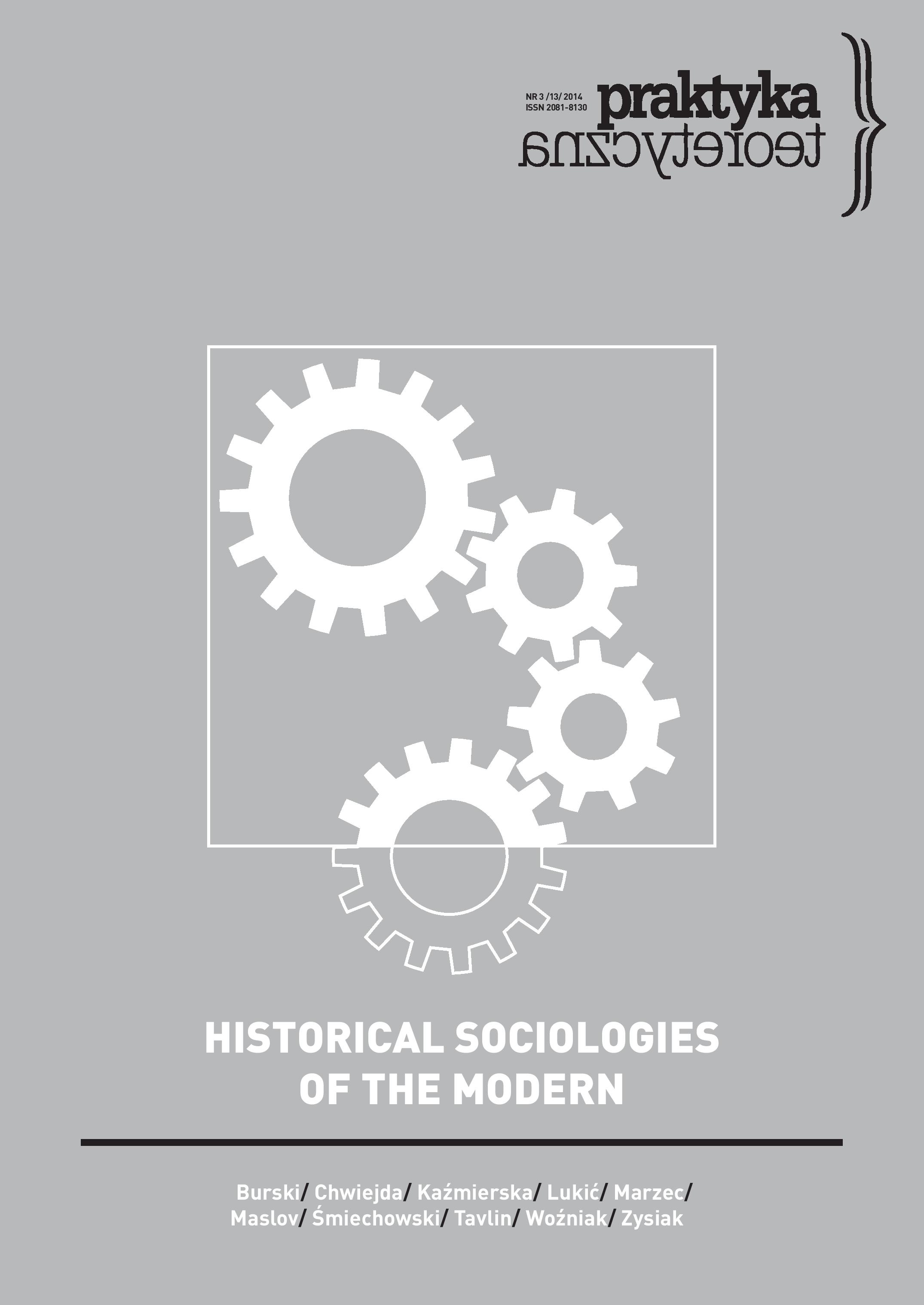Market Value and Victorian Hybrids Dickens and Marx Against Latour
Market Value and Victorian Hybrids Dickens and Marx Against Latour
Author(s): Zachary TavlinSubject(s): Politics / Political Sciences, Social Sciences, Economy, Marxist economics, Sociology, Socio-Economic Research
Published by: Uniwersytet Adama Mickiewicza
Keywords: Latour; Dickens; Marx; modernity; Victorian
Summary/Abstract: When Bruno Latour says that “we have never been modern,” he means only to recognize that the ‘actually living’ of modernity (or the temporal duration we’ve often categorized as ‘modernity’) is something altogether different (and far more complicated) than the theoretical apparatus by which academic intellectuals use to describe and categorize it. The modern condition, then, involves a separation between the socio-economic creation of ‘hybrid objects’ and theoretical reflection on society. This reflection takes the form of ‘purification,’ or a clear distinction between nature and culture, science and politics. Drawing upon Charles Dickens’ last completed novel, Our Mutual Friend, as well as Marx, I will argue that already in Victorian England we can find coherent representations of modernity that defy Latour’s high standard of actualized purification (or a visible ‘reality’ that conforms to our purified categorizations). That is, in Dickens and Marx we can find a literary-economic discourse of ‘modernity’ (which may also be Victorian post-humanism) that already recognized the failure of ‘purification’ as the result of expansive capitalism.
Journal: Praktyka teoretyczna
- Issue Year: 2014
- Issue No: 13
- Page Range: 23-37
- Page Count: 15
- Language: Polish

